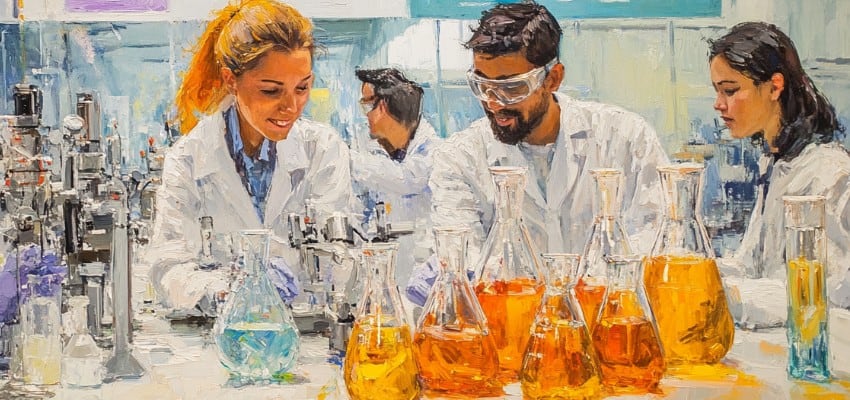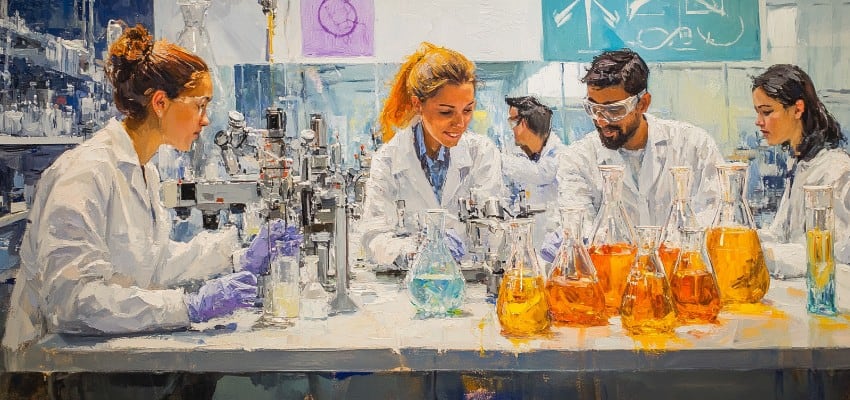Editor’s Note: This article highlights a major development in plastic recycling technology, with significant implications for industries that generate or manage large amounts of plastic waste. Polyethylene and polypropylene, which are used in many everyday products, have historically been difficult to recycle efficiently. The UC Berkeley team’s new catalytic process offers a potential solution that could contribute to a circular economy, reducing environmental impact and offering a more sustainable future for the plastics industry. Understanding this breakthrough is critical for professionals focused on sustainability, waste management, and corporate responsibility.
As part of ComplexDiscovery OÜ’s commitment to providing comprehensive insights, this article reflects an expanded focus beyond the core areas of cybersecurity, information governance, and eDiscovery. While outside the traditional news beat coverage, the subject matter discussed offers valuable opportunities in areas that may be measured, monitored, and reported, which can directly impact processes related to audits, investigations, or litigation. By understanding these emerging trends, professionals can better anticipate regulatory and operational changes that could affect data management, compliance, and legal discovery practices.
Content Assessment: UC Berkeley Scientists Pioneer Circular Economy for Plastic Waste
Information - 93%
Insight - 91%
Relevance - 88%
Objectivity - 87%
Authority - 89%
90%
Excellent
A short percentage-based assessment of the qualitative benefit expressed as a percentage of positive reception of the recent article from ComplexDiscovery OÜ titled, "UC Berkeley Scientists Pioneer Circular Economy for Plastic Waste."
Industry News – Sustainable Development Beat
UC Berkeley Scientists Pioneer Circular Economy for Plastic Waste
ComplexDiscovery Staff
A promising new process developed at the University of California, Berkeley (UC Berkeley) offers a potential solution to one of the most pressing environmental challenges: the management and recycling of plastic waste. This innovation targets two of the most common and stubborn plastics, polyethylene (PE) and polypropylene (PP), materials found in everything from plastic bags to microwavable dishes.
Researchers at UC Berkeley have devised a catalytic process that breaks down these durable plastics into valuable hydrocarbon building blocks, which can then be reused to create new plastics. This approach could help create a circular economy for PE and PP, reducing the need for virgin plastics and curbing the environmental damage caused by plastic waste.
A Growing Plastic Waste Problem
PE and PP make up about two-thirds of the plastic waste generated worldwide. Despite the ubiquity of these materials in consumer products like plastic bottles and food containers, the recycling rate for these plastics remains dismally low. Most post-consumer PE and PP waste ends up in landfills, incinerators, or scattered as environmental pollutants.
The challenge has been the difficulty in breaking down these polymers, which are made up of stable single-carbon bonds. Traditional recycling techniques have struggled to find a cost-effective and energy-efficient way to cleave these bonds and repurpose the materials.
The Science Behind the Breakthrough
John Hartwig, a chemistry professor at UC Berkeley, leads the team behind this new method. He and his colleagues, Richard J. “RJ” Conk and Alexis Bell, have developed a system that uses a dual-catalyst approach to break down the long polymer chains in PE and PP. The system utilizes sodium on alumina and tungsten oxide on silica as catalysts to decompose the plastics into useful monomers, such as propylene and isobutylene, which are essential in producing new plastics.
This new process, recently published in the journal Science, is a departure from previous recycling methods that relied on expensive metal catalysts and often yielded limited results. The UC Berkeley method enhances the efficiency of plastic breakdown while using more cost-effective materials, making it a more viable option for large-scale recycling.
“We have an enormous amount of polyethylene and polypropylene in everyday objects, from lunch bags to laundry soap bottles to milk jugs—so much of what’s around us is made of these polyolefins,” Hartwig explained, underscoring the potential impact of the research.
Challenges and Considerations
Despite the promise of the new catalytic process, experts caution that scaling this technology from the lab to industrial use will require overcoming several hurdles. Neil Tangri from the Global Alliance for Incinerator Alternatives (GAIA) pointed out that plastic recycling is currently inefficient, with only a small fraction of global plastic waste being recycled each year. He emphasized that the economic viability of the process, as well as addressing contamination issues in the plastic waste stream, will be critical for its success.
The presence of impurities, such as PET and PVC, can significantly reduce the efficiency of the process. Hartwig acknowledges that sorting and cleaning the waste to remove these contaminants will be essential, particularly for scaling the process to handle mixed plastic waste.
However, the team remains optimistic. Clean sources of polyolefin waste, such as plastic bags from supermarkets, could provide a more straightforward application of the technology. The ability to recycle these materials into new products with minimal energy input could make a meaningful impact on reducing plastic waste in landfills and the environment.
Toward a Circular Economy for Plastics
The implications of this development go beyond merely addressing plastic waste. By offering a more efficient and cost-effective recycling solution, the UC Berkeley team’s research could be a steppingstone toward a circular economy for plastics. In this model, materials like PE and PP would no longer be viewed as disposable but as reusable resources.
For this vision to be realized, collaboration between research institutions, industry players, and policymakers will be key. Developing efficient systems for sorting and cleaning plastic waste, as well as implementing the new catalytic process at an industrial scale, will require coordinated efforts and investment.
As Hartwig and his team continue to refine their process, the prospect of turning what was once a major environmental liability into a valuable resource is closer than ever. The widespread adoption of this technology could reduce reliance on new plastic production, lower greenhouse gas emissions, and lessen the burden of plastic pollution on ecosystems worldwide.
News Sources
- Chemical plastics recycling is ready to go
- New process vaporizes plastic bags and bottles, yielding gases to make new, recycled plastics
- GLIMMER OF HOPE?
- Has a California lab discovered the holy grail of plastic recycling?
- Berkeley researchers vaporize PE, PP into feedstock
- New process vaporizes plastic bags and bottles, yielding gases to make new, recycled plastics
Assisted by GAI and LLM Technologies
Additional Reading
- From Climate Finance to Plastic Pollution: Inside the UN’s Summit of the Future
- From Code to Carbon: The IT Industry’s Sustainable Transformation
- ComplexDiscovery OÜ Green Computing, Carbon Neutrality, and Governance Policy
Source: ComplexDiscovery OÜ




























